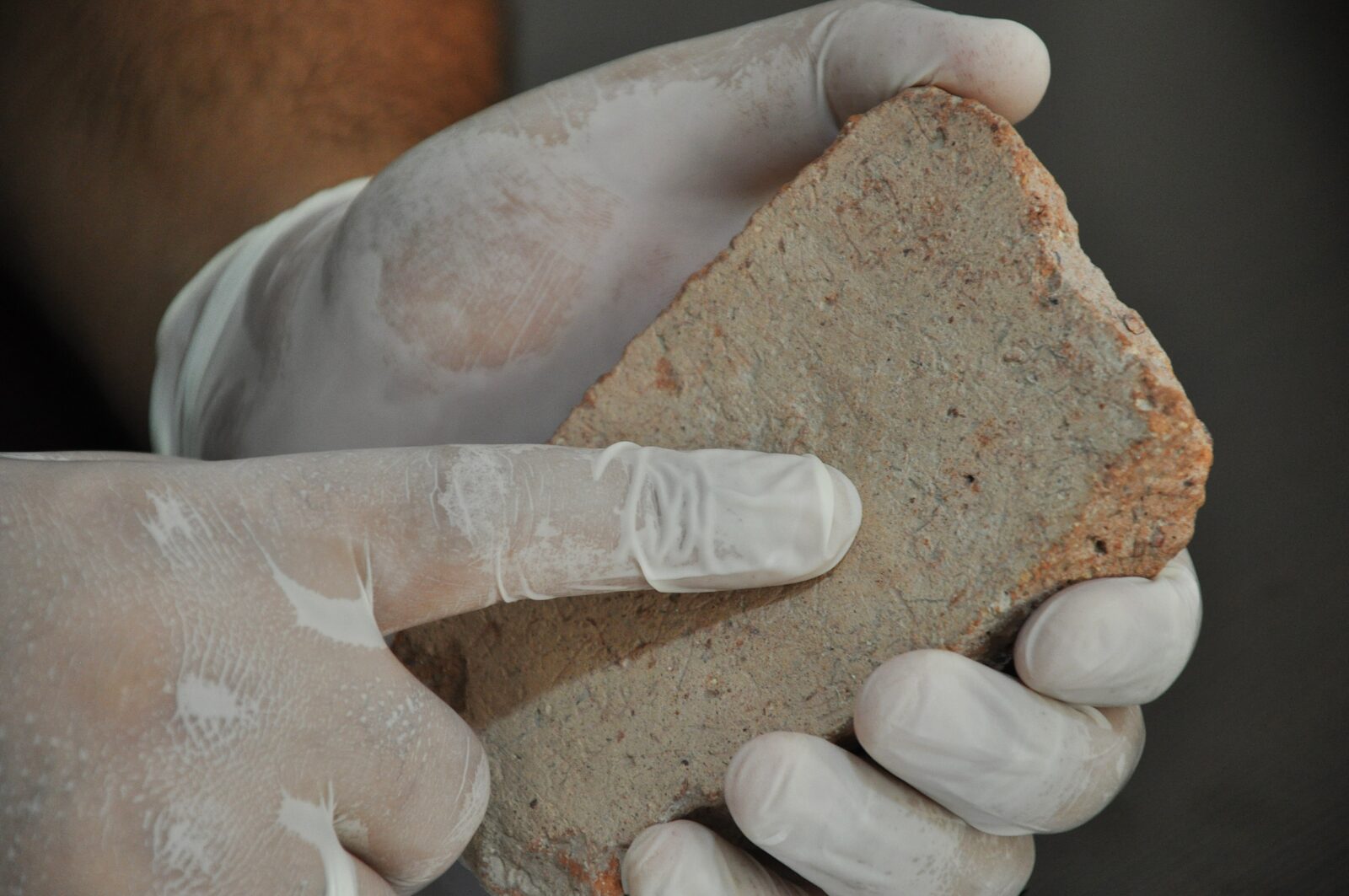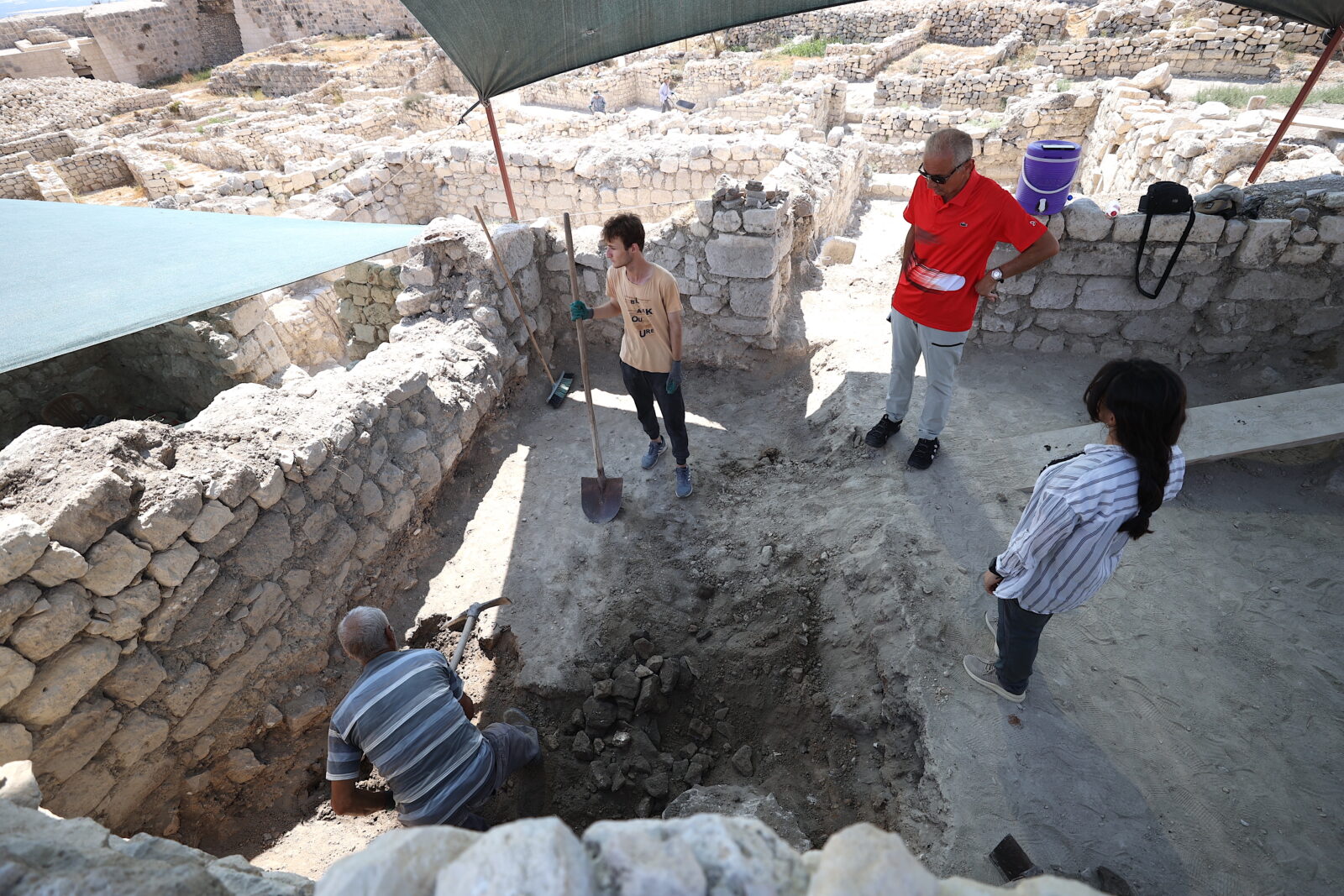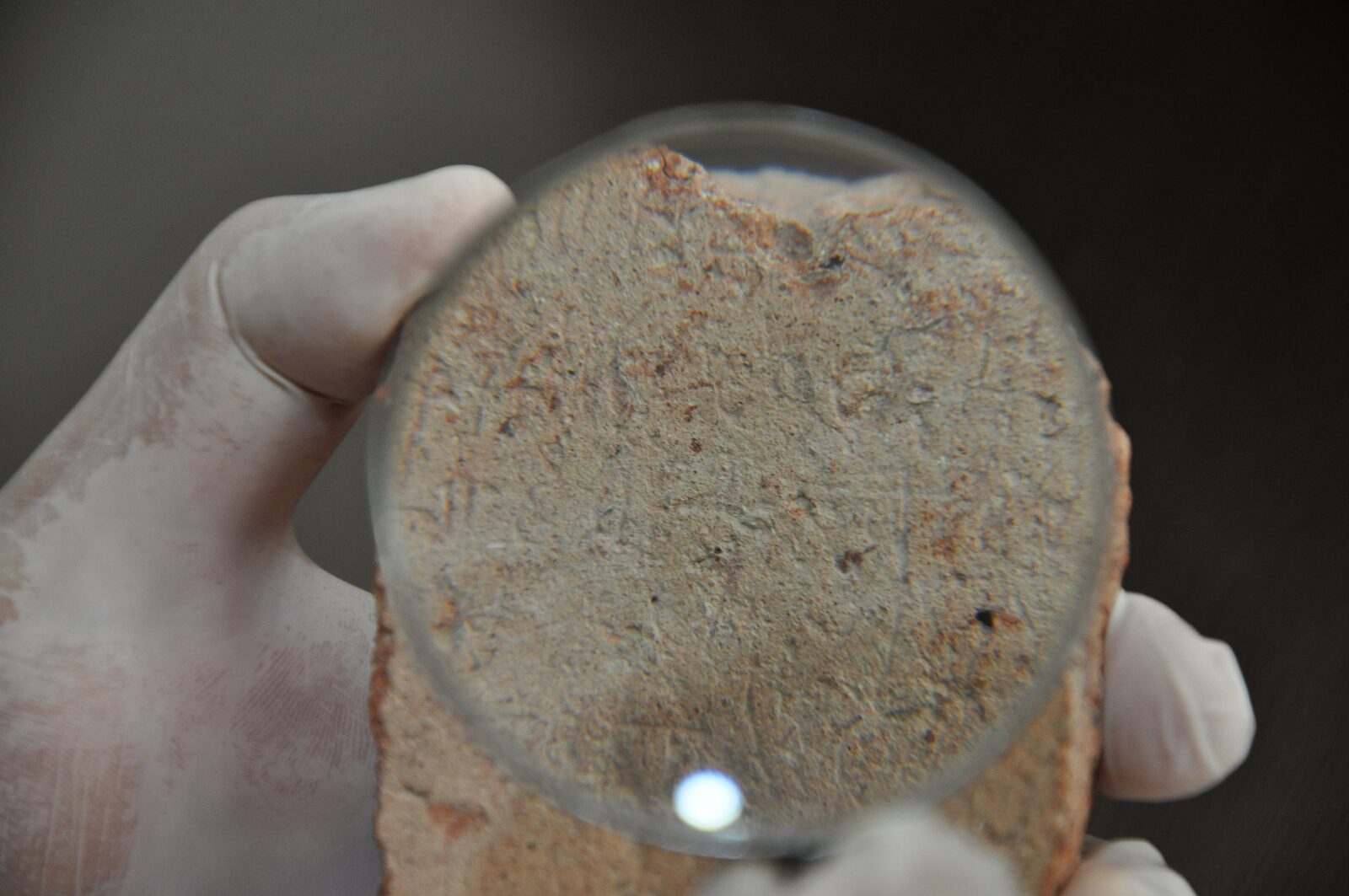
Archaeological excavations at Silifke Castle in Mersin, a site with continuous habitation from the Roman period through the 20th century, have revealed a significant find: a Byzantine "protective tablet" believed to have been used to guard structures or graves against malevolent forces.
This discovery adds a fascinating layer to our understanding of the region's history.

The "talismanic grave tablet," unearthed at the 185-meter-high hilltop castle in Silifke, is part of ongoing excavation and restoration efforts led by the Ministry of Culture and Tourism. The 13th phase of these excavations, overseen by Professor Ali Boran from Ankara Haci Bayram Veli University, has brought to light this intriguing artifact.
The tablet, found during excavations around the mosque within the castle's "urban" structure, is currently undergoing detailed analysis. Initial studies suggest that it was crafted to protect buildings or graves from evil and enemies, akin to modern-day "nazar boncugu" or protective charms.

Professor Ali Boran, the excavation leader, shared insights with AA reporters about the tablet's significance. He highlighted that the current season's digs have yielded crucial findings that will provide new identities for ancient architectural structures.
Boran recalled recent discoveries, including ancient tear bottles, lamps, and ceramics, which were thought to have been left as gifts at graves. The newly uncovered tablet, however, stands out as a remarkable find.
"The tablet's inscriptions suggest it was designed to protect against all forms of malevolence and enemies," Boran explained. "Its complete analysis is ongoing with our epigraphy experts, but it already indicates that this site was not merely a city but had diverse attributes."

Boran emphasized the tablet’s relevance to both regional and Anatolian history. He noted that while no grave structures had previously been found within the castle, the tablet indicates the presence of a grave site during the Byzantine period.
"This tablet, discovered west of the mosque, is not large but its content and inscription are highly informative," Boran added. "Similar to how some people today view a 'nazar boncugu' as protective, such items have been used since antiquity to ward off harm. The presence of this tablet at Silifke Castle is a crucial historical insight."
The discovery of the Byzantine "protective tablet" at Silifke Castle not only enriches our understanding of ancient protective practices but also provides valuable insights into the historical significance of the site. This finding underscores the castle's role beyond its architectural and urban features, revealing a deeper layer of cultural and historical context.
As excavations and analyses continue, the tablet's revelations will likely contribute significantly to the broader narrative of Byzantine history and regional heritage. The Silifke Castle site, with its ongoing discoveries, remains a vital source of knowledge about ancient practices and societal beliefs.